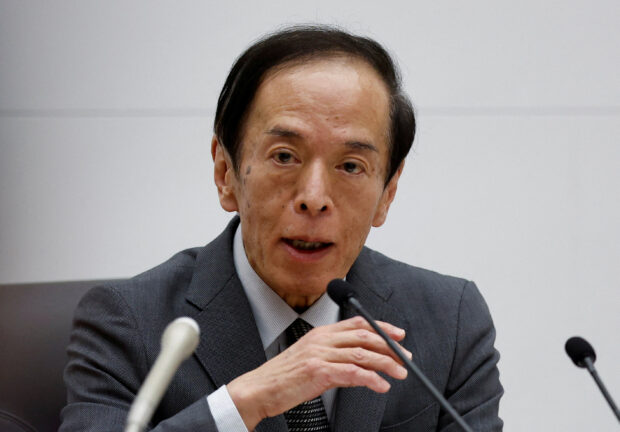
Bank of Japan (BOJ) Governor Kazuo Ueda attends a news conference after their policy meeting at BOJ headquarters in Tokyo, Japan April 28, 2023. REUTERS/Issei Kato/File photo
NAGOYA, Japan – Bank of Japan Governor Kazuo Ueda said on Monday the likelihood of the country achieving the central bank’s 2 percent inflation target was gradually increasing but not enough to end ultra-loose monetary policy.
The key considerations to whether Japan can sustainably achieve 2 percent inflation is whether wages will keep rising next year and beyond, and whether companies will start hiking prices on expectations that labor costs will continue to increase, Ueda said in a speech to business leaders in Nagoya, central Japan.
“We’re seeing more positive signs than before in corporate wage and price-setting behavior. But there’s still uncertainty on whether the positive cycle (of inflation and wages) will strengthen, as we predict,” he said.
While Japan’s economy is likely to continue recovering, the outlook was “extremely uncertain” due largely to overseas risks such as the impact of aggressive U.S. interest rate hikes on financial markets, and China’s weak growth momentum, Ueda said.
The BOJ kept interest rates ultra-low last week despite revising up its inflation forecasts on the view recent price rises were predominantly due to cost-push factors, and must be driven more by robust demand and higher wages to phase out its massive stimulus.


